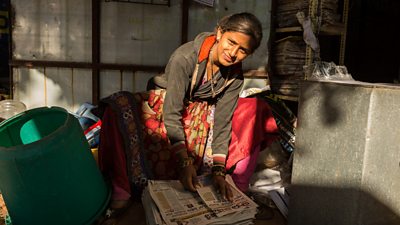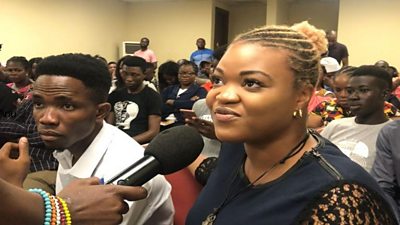Downloads
Research summary
Published: February 2022
Authors: Varinder Kaur Gambhir, Neema Gupta and Sonal T Chaudhuri
����ý Media Action’s ‘A Pathway to Respect, Identity, Dignity and Empowerment’ (PRIDE) project aims to shift negative perceptions about informal waste pickers and highlight their contribution to society in the city of Bengaluru in India. Formative research revealed that for most people in Bengaluru , there is lack of recognition of the “humans” behind the process of waste management and there is also a high degree of stigma towards informal waste pickers.
The first phase of the project’s social media campaign to tackle these issues reached 21% of Bengaluru’s population. Research shows it has improved awareness of informal waste pickers, increased appreciation of the work they do and generated discussion about how they contribute to society.
The context
Bengaluru, a rapidly growing metropolis in India with a population of 12.5 million citizens, generates 5,757 metric tonnes of solid waste per day . Estimates suggest that approximately 20,000-30,000 people are engaged in waste picking in the city, forming the backbone of its waste management system.
Despite their invaluable contribution to waste management, society and the economy, waste pickers and their families face significant negative stigma, are treated with suspicion and contempt, and are often left with a sense of shame about the work they do. That, in turn, leads to low self-esteem, an increased likelihood of substance abuse, and no notion of pride in their work.
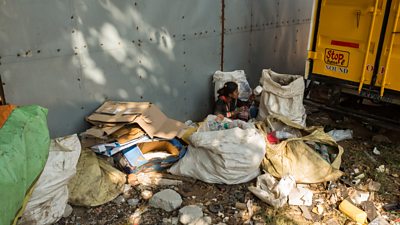
The project
In December 2019, ����ý Media Action joined the H&M Foundation-funded Collective Impact Initiative – Saamuhika Shakti – to improve the lives of informal waste pickers in Bengaluru. As a part of this PRIDE project - ����ý Media Action is using a multi-phase social media campaign (#Invaluables) to shift perceptions about waste picking and informal waste pickers in the city of Bengaluru.
Formative research with the public and informal waste pickers of Bengaluru revealed that while waste on the streets is visible and is of concern to the public, informal waste pickers are virtually ‘invisible’ to most people. It also found that while people in Bengaluru are generally grateful for the work that formal waste collectors do, there is a high degree of stigma attached to informal waste pickers compared to more formal waste pickers.
The way they (informal waste pickers) look is very scary; they have to change their appearance and behaviour to be accepted.”
To understand why some lives are valued and others not, the project drew on the work of Professor Judith Butler and the project’s formative research. As a result, the project’s Theory of Change focused on the shared fragility of all life and the social bond that obliges us to care for each other. The first phase of the communication campaign aimed to increase the public’s awareness and understanding of who informal waste pickers are, and humanise them. Subsequent phases will aim to establish interconnectedness between the public and the informal waste picking community by highlighting the community’s contributions to people’s lives.
Key findings from Phase 1
Reach and engagement: The social media analytics data shows that the first phase of #Invaluables content reached at least 2.6 million unique people (21% of the Bengaluru population) through paid ads on Facebook and Instagram. There were a total of 26.2 million impressions, 509,429 engagements (e.g. likes, comments) and 4.4 million video views.
Awareness of informal waste pickers: Among panel members exposed to the #Invaluables content, there was an improvement in spontaneous awareness of different segments of informal waste pickers - such as sorters at scrap shops or dry waste collection centres - from 10% at baseline to 16% amongst those exposed to the content, with no change observed in the control (unexposed) group. Some panel members also mentioned noticing the work of informal waste pickers more.
Appreciation and recognition of informal waste pickers: Increased awareness of waste pickers and their work has also helped build recognition and appreciation of their contribution to society. For example, among those exposed to #Invaluables content there was a 6% increase (from 71% at baseline to 77% after Phase 1) in those acknowledging the contribution of informal waste pickers in helping the environment through waste picking and sorting (recycling). Among those unexposed to the content, this figure remained almost similar to baseline at 70%.
I have started respecting them after seeing the video. [social experiment film ] Earlier, I would not talk properly to them, I would just say “go away from here”. Now it is different…”
Discussion: Analysis also shows greater discussion about informal waste pickers, their work and place in society among those exposed (60%) to the content compared to those not exposed (49%). Conversations appear to be taking place among families, neighbours and within resident welfare associations. This finding is supported by analysis of online conversations generated by the content.
Next steps
With awareness, appreciation and discussions increasing after the first phase of the campaign, a movement in the right direction is evident. However, ingrained attitudes are difficult to shift, so subsequent phases will continue to build awareness of the valuable work of informal waste pickers and seek to shift prejudices and stigma towards them while building greater appreciation for their work.
To read more on the methodology and insights from this study please see the document above. Find out more about our work in India here.
Read more on the impact of our work through social media
Our research library
-
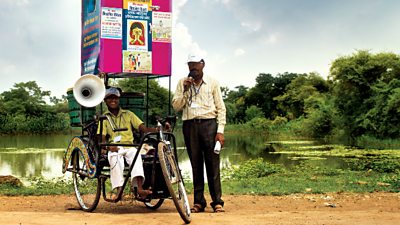
Long reads
Read our comprehensive research reports of the evidence behind our work. All of our publications are freely available to download. -

Short reads
At a glance, explore key findings and evidence behind our work. All of our publications are freely available to download. -
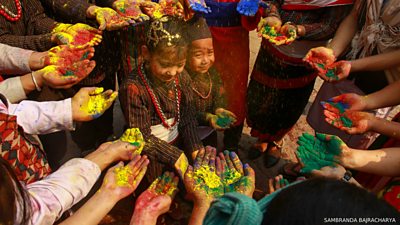
By country
Explore our findings and analysis country by country. All of our publications are freely available to download. -
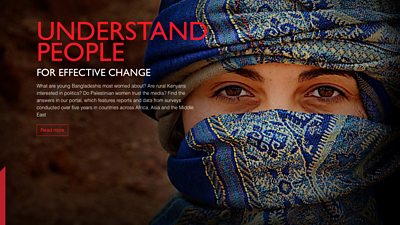 What are young Bangladeshi's most worried about? Are rural Kenyans interested in politics? Do Palestinian women trust the media? Find the answers in our data portal (last updated 2020).
What are young Bangladeshi's most worried about? Are rural Kenyans interested in politics? Do Palestinian women trust the media? Find the answers in our data portal (last updated 2020).
